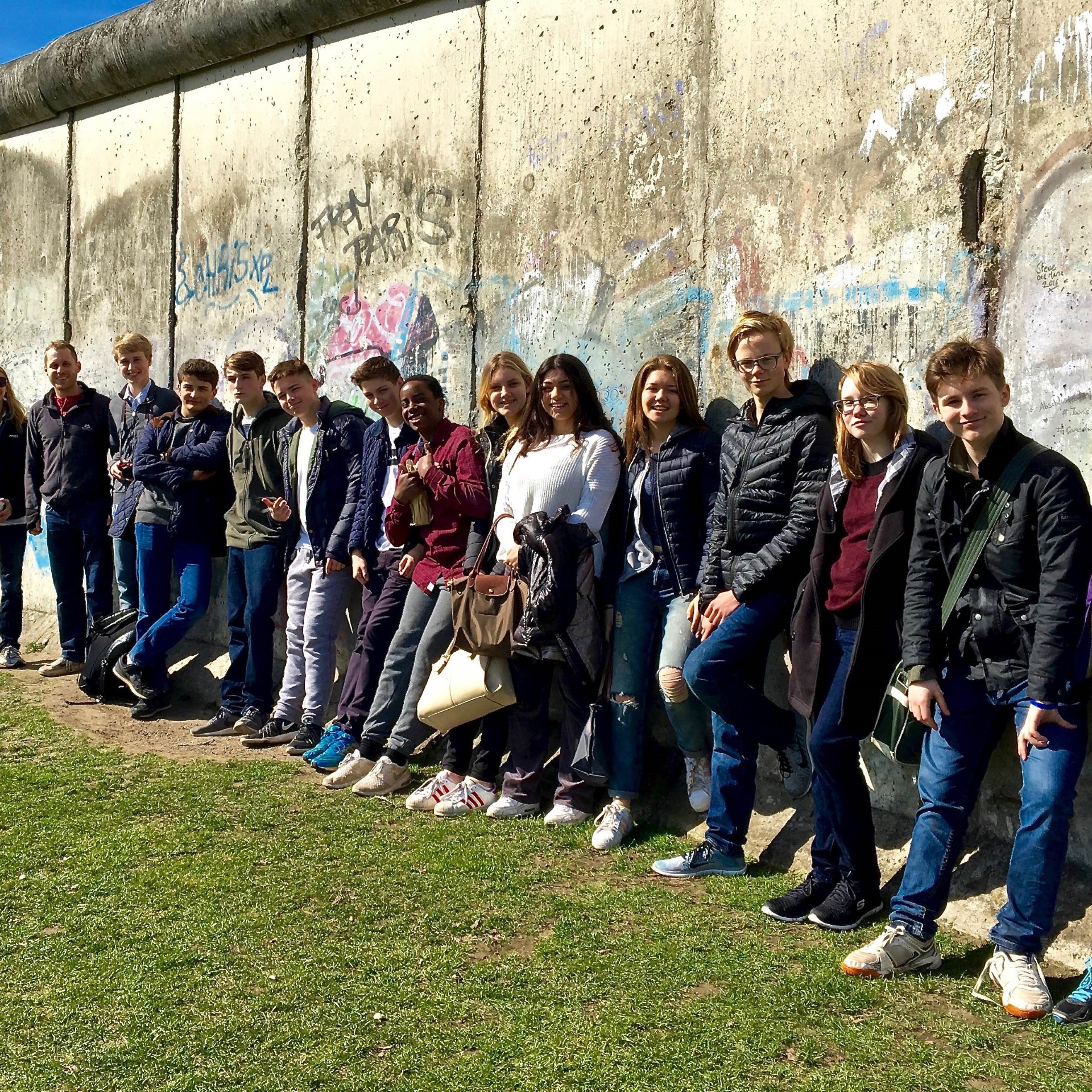Berlin Trip
29 April 2016

During the Easter break, 31 Third and Fourth Form Stoics travelled to Berlin to further their studies of both Hitler’s Germany and the Cold War.
On the first day, pupils were treated to panoramic views from the top dome of Berlin Cathedral and considered Germans’ reflective view of their own past at Neue Wache; Germany’s equivalent of the Centotaph. Later in the week we considered Hitler’s rise to power through democratic means at the German parliament building, despite the break with the past, remnants of Nazi architecture remain and pupils viewed old government buildings and visited the Olympic Stadium; site of the 1936 Olympic Games and Jesse Owens’ defiant success against Hitler’s racist views. These dark themes were further elaborated on at Sachenhausen Concentration Camp, where tens of thousands of people were murdered during political persecution and the Holocaust. A lecture at the Wannsee Villa (site of the meeting at which the ‘final solution’ was agreed upon in January 1942) raised difficult questions about the motivations of both perpetrators and bystanders. Similarly, the Holocaust Memorial and the fascinating Jewish Museum in the city centre allowed pupils to consider ways in which these events might be commemorated today.
The final days of Hitler’s dictatorship in 1945 were also examined, with a short visit to the site of Hitler’s Führerbunker (now a car park). The occupation of the city by the Allied powers was another key theme examined through a trip to the Soviet War Memorial. The Berlin Wall was further crucial point of interest, a memorial of those killed by border guards also brought home how recently these events occurred. Finally, a visit to the Brandenburg Gate was a good reminder of the exciting events in 1989 as the city finally reunified.
There is something special about standing in a place where important events in history happened. In Berlin, there is such a wealth of these experiences and pupils have gained a great deal from these.
Paul Griffin, Head of History